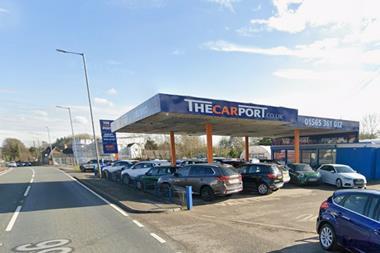
Spiralling staff costs sparked by the new National Living Wage this April, and crime are the biggest concerns for forecourt operators.
Meanwhile, independent fuel retailers are gloomier about business prospects than they were immediately before the pandemic, but most remain positive about the trading environment.
These are among the key findings from a survey of traders by Lumina Intelligence presented by insight lead Katie Gallagher at the Forecourt Trader Summit on 27 February.
The poll by Lumina Intelligence – a sister business of Forecourt Trader – found that 51% of forecourt operators are positive about the current trading environment, with 6% extremely positive. This compares with 31% who think it is challenging, and 4% extremely challenging.
However, the level of net positivity is 15 percentage points down on the previous survey in January 2020.
The most important business challenges are the new National Living Wage and higher labour costs – cited by 71% of respondents compared with 61% four years ago – together with crime and fuel theft, raised by 63% of retailers (the question was not asked in 2020).
“Increased crime is something that the grocery retail industry has been very vocal about,” Gallagher told the audience, noting that a new campaign – Stop Shop Theft – is calling on police and crime commissioners to tackle crime on a local level.
Attracting and retaining high calibre staff is the third equal biggest preoccupation for retailers, stated by 59% (the same as 2020).
“This has been rated as a more pressing challenge than pre-Covid, with staff shortages in the retail sector and throughout different supply chains also driving up staff costs,” noted Gallagher.
The same percentage name uncertainty about the future of alternative fuels as a significant challenge (slightly down on four years ago, when it was 63%).
Asked about the biggest changes retailers have seen to their business in the past 12 months, the responses are similar to 2020, with increased food to go sales and increased footfall the two highest.
Gallagher noted that this is probably due to increase transience among the UK population after a slow 2022, when the country was still recovering from the lockdown period.
However, 41% report decreased fuel volumes as a major change, compared with just 15% in January four years ago.
Just over a third – 37% – of forecourt operators expect conditions to deteriorate over the next 12 months, with only 10% anticipating an improvement. However, this pessimism is tempered by the fact that 94% agree that forecourts retailing is a profitable business.
Questioned on the importance of various services, 63% say having a good convenience store is crucial, ahead of air and water (61%), car wash and valeting/vacuum (both 57%), and good parking (53%).
The top four services expected to grow in importance in the next five years are electric vehicle charging, alternative fuels (such as hydrogen or LPG), good car parking, and a home delivery service for groceries.
“It is the view of many that more EVs could result in longer dwell times which will be beneficial for some operators in more remote locations,” said Gallagher. “For those more dependent on alternative services including convenience, parking spaces are crucial.”
On the other hand, laundromats, cashpoints, partnerships with home delivery services such as Deliveroo, and parcel collection were listed as likely to be less important.
Gallagher notes that the forecourt shop services most retailers consider will be important in five years are very similar to four years ago, with 96% listing hot coffee, closely followed by a good convenience offer, food to go, a chilled section, and foodservice such as a bakery or café.
When it comes to electric charging, operators seem reluctant to invest in the technology, with only 18% likely to remove tanks to make more space for EV stations in the next five years. However, three-quarters of respondents believe that in future there will be fewer, bigger forecourts offering a range of services.
Of this apparent contradiction, Gallagher remarked: “Perhaps this is a little bit of denied responsibility and a haste to be the first to act.”
There is still plenty of scepticism around how quickly EVs will displace conventionally powered cars, with a quarter of respondents of the opinion that EVs will never become mainstream, and a similar percentage believing they will, but in more than 10 years. In total 45% think EVs will be commonplace within a decade.
However, 64% of retailers do have an EV strategy, which, according to Gallagher, tends to be “slow and steady investment and very much testing the waters of what is working and where it is working”.
































